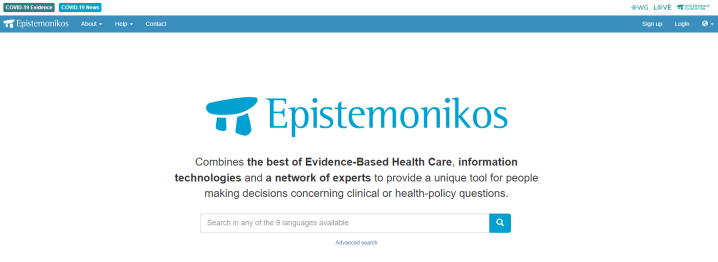Epistimonikos: Dig in to Systematic Reviews

Systematic reviews, more broadly, evidence syntheses, collect and synthesize primary evidence in healthcare. Not only do these comprehensive documents save medical professionals’ time, they can also provide a higher level of evidence than individual studies do on their own. However, the sheer number of evidence syntheses (meta-analyses, systematic reviews, scoping reviews, rapid reviews, and more) published each year is beginning to render these time saving resources unmanageable. A simple search for epilepsy and cannabinoids on PubMed, limited to Systematic Reviews or Meta-Analysis, yields 37 results, 34 of which have been published in the last 5 years (since 2017). Continue reading “Epistimonikos: Dig in to Systematic Reviews”

